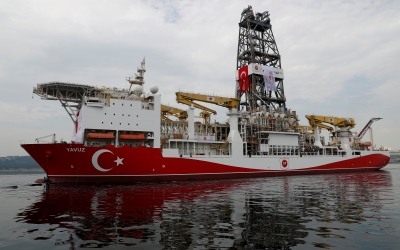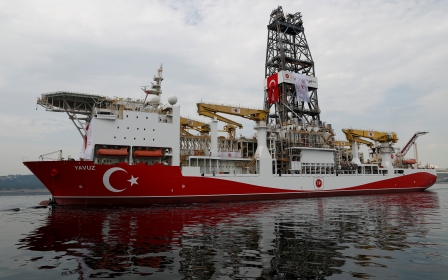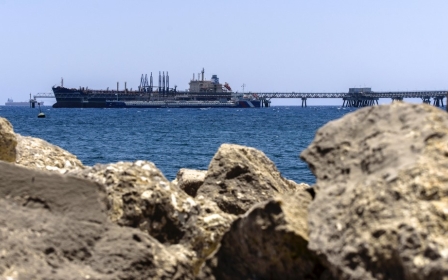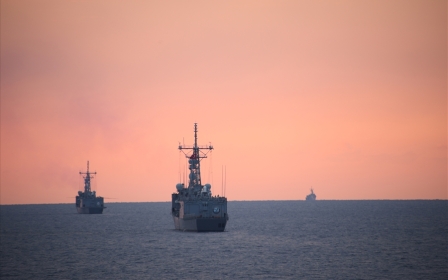Turkish Cypriots propose offshore gas cooperation after tensions increase
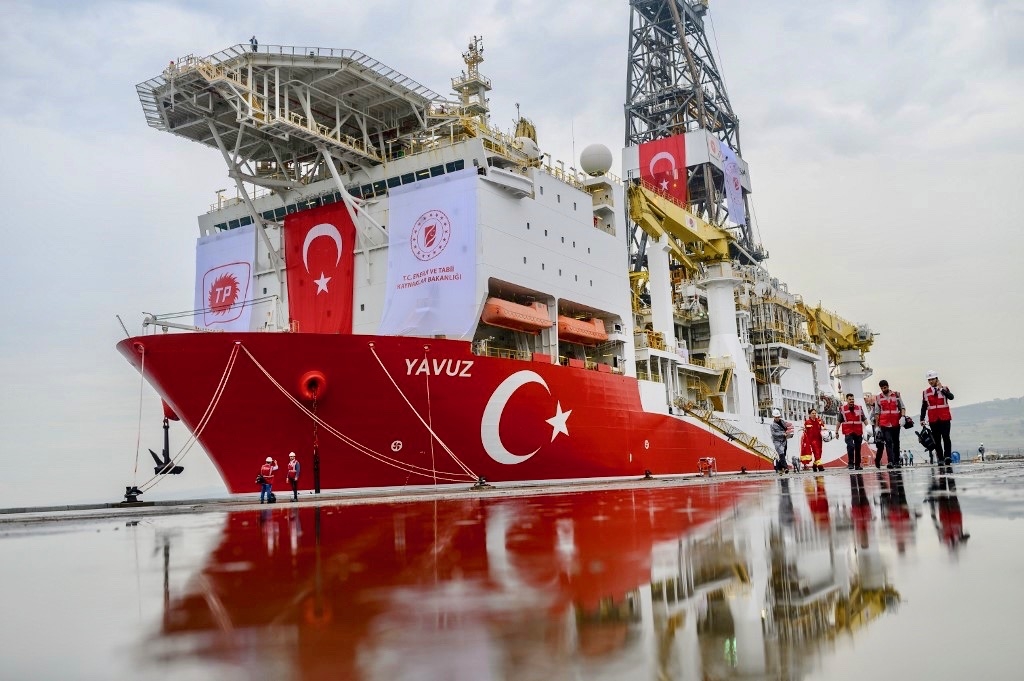
Turkish Cypriot leader Mustafa Akinci on Saturday proposed creating a joint committee on the divided Mediterranean island to address tensions over offshore energy reserves.
The measure aims to "pass the subject of hydrocarbons from an area of tensions and conflicts to an area of productive cooperation," Akinci said in a note addressed to his Greek Cypriot counterpart, Nicos Anastasiades, AFP reported.
Akinci's message, which was relayed by a UN intermediary, came as Turkey has vowed to continue drilling off Cyprus.
Turkey and the Cyprus government have overlapping claims in the waters off Cyprus, linked to the 45-year-old split of the island and Ankara's rejection of agreements Cyprus has reached with other Mediterranean states on maritime economic zones, Reuters said.
New MEE newsletter: Jerusalem Dispatch
Sign up to get the latest insights and analysis on Israel-Palestine, alongside Turkey Unpacked and other MEE newsletters
Turkey told energy firms last year not to carry out exploration work with the Greek Cypriot government and has sent two ships of its own to drill off the island, leading Cyprus to issue arrest warrants and the EU to warn it may curb contacts and funding for Ankara.
Akinci’s proposal is aimed at creating a cooperation mechanism between Turkish and Greek Cypriots, describing them as co-owners of hydrocarbon resources to which they hold equal rights.
The proposal was welcomed in a statement by the Turkish Foreign Ministry. "As such, the proposal envisages cooperation including revenue sharing and enables the two sides to benefit from hydrocarbon resources simultaneously," it said.
If adopted, the proposal would "initiate a new period of cooperation between the two parties," it added.
Cyprus was divided in 1974 after a Turkish invasion triggered by a brief, Greek-inspired coup. Several peacemaking efforts have failed and the discovery of offshore resources in the eastern Mediterranean has complicated negotiations.
Turkey, which has no diplomatic relations with Cyprus, is the only country that recognises the breakaway state in the north of the island. Cyprus says Turkey's drilling operations are contrary to international law and that decisions on hydrocarbons are its sovereign right.
The Turkish statement said Ankara was resolved to protect the "equal rights of the Turkish Cypriots" over maritime gas resources, as well as Turkey's own "continental shelf rights in the eastern Mediterranean".
The committee proposed by Akinci to resolve the dispute would include representatives of his administration and those of the Republic of Cyprus in equal number, supervised by the UN with the EU as an observer.
A Turkish drilling ship, the Fatih, started operations off the western coast of Cyprus in May and a second ship, Yavuz, anchored off northeast Cyprus last week in preparation to start work.
In response, EU diplomats last week prepared to curb contacts and funding for Ankara in a display of solidarity with EU member state Cyprus, in whose exclusive economic zone they said the Turkish ships were interfering.
A draft decision discussed by the diplomats said that in light of Turkey's "continued and new illegal drilling activities" the bloc should reduce funding linked to Ankara's long-stalled talks for accession to the EU.
It also called for the suspension of the EU's "high level dialogues" with Turkey.
The EU has said Ankara under President Recep Tayyip Erdogan is moving further away from the bloc.
Still, an EU diplomat involved in the talks said sanctions against Ankara would probably be limited because the EU still needs Turkish cooperation on other matters, including security and migration.
Middle East Eye delivers independent and unrivalled coverage and analysis of the Middle East, North Africa and beyond. To learn more about republishing this content and the associated fees, please fill out this form. More about MEE can be found here.


